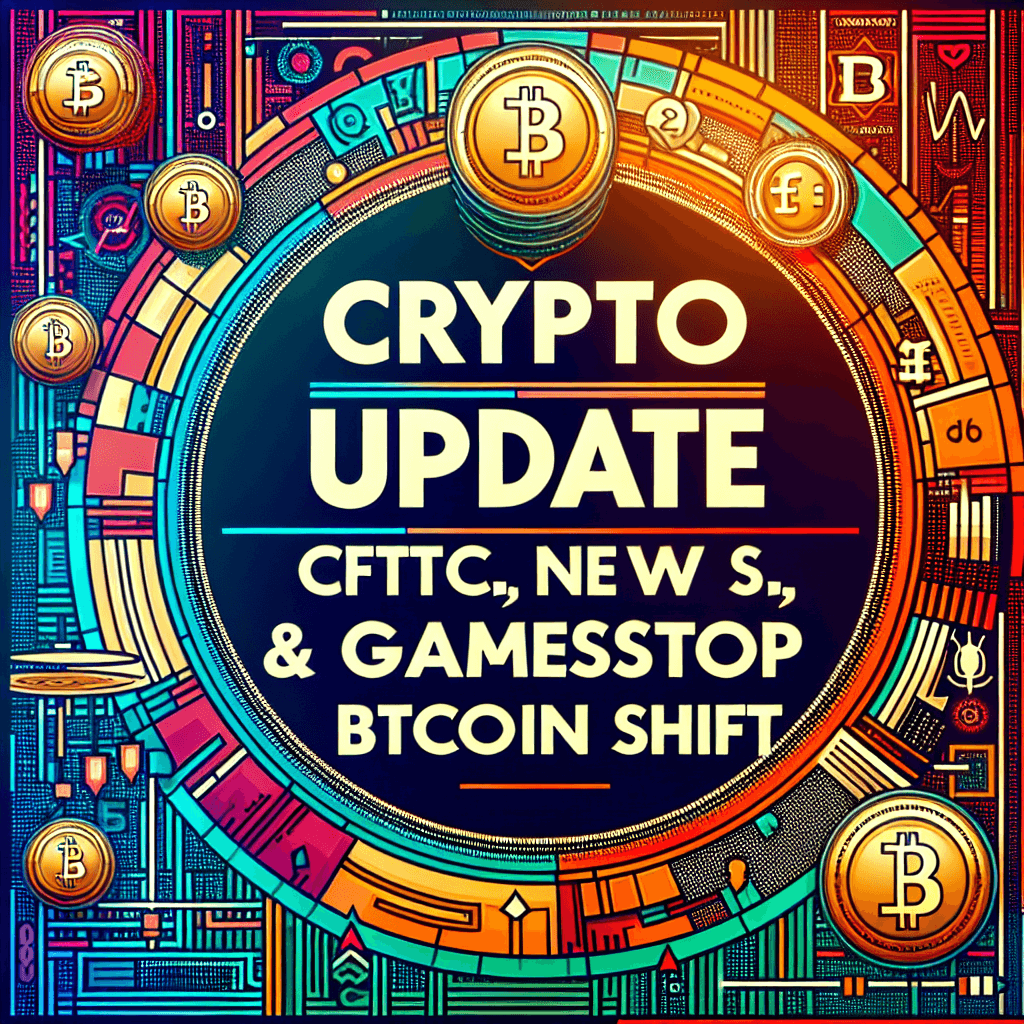Crypto Update: CFTC News, Circle IPO & GameStop Bitcoin Shift


Crypto Vulnerable if CFTC Lacks Expanded Authority
Former Commodity Futures Trading Commission (CFTC) Chair Rostin Behnam told Bloomberg TV on May 28 that the crypto market remains a regulatory gray zone unless Congress grants the agency explicit authority over spot digital assets. He argued that under existing law the Securities and Exchange Commission (SEC) can only police securities and the CFTC only derivatives, creating a gap for tokens like Bitcoin and Ether that trade both spot and futures contracts.
Behnam highlighted Section 4a of the Commodity Exchange Act and Section 5’s anti-fraud provisions, noting that neither statute fully covers deliverable digital assets. “The few largest tokens are commodities,” he said, “but without clear jurisdiction over cash markets in digital assets, non-securities remain unregulated.”
Technical Authority & Market Integrity
- Current CFTC powers: oversight of derivatives markets, enforcement of manipulation rules under Dodd-Frank.
- Gap in spot regulation: no mandate to register digital-asset trading platforms as designated contract markets (DCMs).
- Proposed solution: a new Digital Commodity Exchange Act to extend CFTC oversight to spot markets, enforce capital and segregation requirements, and mandate reporting of on-chain transactions.
“Until we do something, customers—retail and institutional—will remain vulnerable to harm, fraud, manipulation and conflicts of interest,” Behnam said.
BlackRock Eyes 10% Stake in Circle’s IPO
According to a May 28 Bloomberg report, asset manager BlackRock plans to acquire roughly 10% of shares in Circle’s upcoming initial public offering (IPO). Circle, issuer of the USDC stablecoin, filed its Form S-1 on April 1, targeting a $624 million raise via 24 million Class A shares on the NYSE under ticker CRCL.
Cathie Wood’s Ark Investment Management is also reported to eye a $150 million allocation. Insiders say demand has already exceeded supply by multiple times, driven by Circle’s $43 billion USDC market cap and 1:1 fiat reserves held in short-duration treasuries and money market funds.
Deal Structure & Valuation Metrics
- Pricing range: $25–$28 per share, implying a post-money valuation of $7.5 billion to $8 billion.
- Underwriters: Goldman Sachs, JPMorgan, and Citigroup—tasked with stabilizing post-IPO trading and facilitating greenshoe option.
- Reserve attestations: quarterly audits by Grant Thornton to verify full collateralization of USDC supply.
GameStop’s First Bitcoin Acquisition: Technical & Strategic Implications
On May 28, GameStop confirmed via its X account and SEC Form 8-K that it purchased 4 710 BTC—approximately $513 million at current prices—funded through its March convertible notes offering of $1.3 billion. The purchase was executed via a cold wallet with multi-sig security and is slated for treasury reserve diversification.
While GameStop did not disclose exact execution dates or per-coin prices, blockchain analytics firm Chainalysis notes on-chain settlement around mid-May, suggesting an average entry price near $108 800 per BTC. The move places GameStop among a growing list of corporate treasuries—alongside MicroStrategy and Tesla—holding digital assets as an inflation hedge.
“Direct acquisition of Bitcoin suggests a long-term view on decentralized stores of value,” said James Butterfill, head of research at ETF provider CoinShares.
Global Regulatory Comparison: CFTC vs. Overseas Frameworks
While the U.S. weighs new legislation, other jurisdictions have moved faster:
- European Union: MiCA regulation classifies crypto-assets into e-money tokens, asset-referenced tokens, and utility tokens, with licensing for issuers and service providers.
- United Kingdom: FCA’s temporary registrations cover custody, exchange, and electronic wallet providers, pending full crypto asset regulation later this year.
- Singapore: Payment Services Act mandates capital requirements, technology risk management, and AML/KYC compliance for digital payment token services.
Experts say a harmonized international standard—such as the Financial Stability Board’s roadmap—could reduce arbitrage and strengthen investor protection.
Institutional Adoption & Market Impact
Recent moves by BlackRock, Ark, GameStop and other corporates highlight a broader pattern of institutional entry. According to a Fidelity survey, 80% of institutional investors see digital assets as a distinct asset class. The growing inflows are reshaping liquidity, volatility, and product innovation in both spot and derivatives markets.
Key drivers include:
- Development of regulated spot Bitcoin and Ether ETFs.
- Corporate treasury diversification and balance sheet optimization.
- Integration of on-chain data analytics for risk management.
As regulatory clarity improves, analysts forecast continued growth in institutional AUM allocated to crypto—from $80 billion today to over $250 billion by 2027.